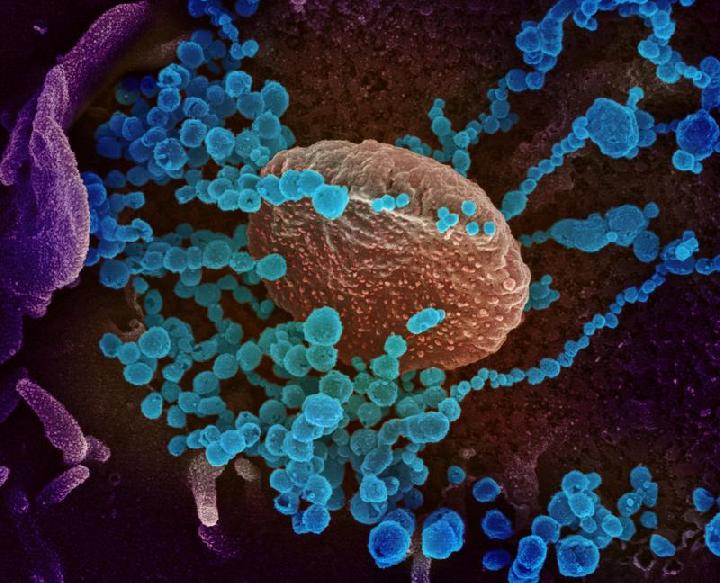Indonesia's Challenge in Coping with Covid-19 Pandemic
Translator
Editor
21 May 2020 21:44 WIB

By: Wiku Adisasmito, Lead Expert at the Indonesian Covid-19 Mitigation Acceleration Task Force, Adjunct Professor of Global Health at Tufts University.
An ancient Javanese philosophy, which goes “mangan ora mangan sing penting kumpul”, is a remarkable depiction of Javanese social capital and the resilience that people have. To gather with family matters most, even if one starves to death.
For many of us paying homage to our roots, at least once a year, is essential. I am no exception. Hailing from Malang, East Java, I build my career, mostly, outside of my hometown. Marking my calendar and preparing my family for mudik (an exodus to return to hometown) is a common thing for me.
More of a cultural and social event rather than religious practice, this tradition is precious to over 20 million Indonesians who will usually start hitting the road one week before the holidays. Mudik has become the epitome of observing Ramadan and celebrating Idul Fitri (Eid al-Fitr).
For Indonesia, home to the world’s largest Muslim population, mudik has also evolved into a huge economic window of opportunities for the private sector to capitalize on the people’s extra spending at this of the year. Last year, the holidaymakers spent around Rp9.7 trillion. As for the government whose half of its GDP depends on household spending, issuing supportive policies to support mudik is an unquestionable mandate.
Every year, the number of mudik travelers has been predicted to increase; that includes some of the 370,000 Indonesian migrant workers working across the globe. But, of course, that’s an estimate before the pandemic.
These days, this is an extremely dangerous idea. With the country’s battling the spread of coronavirus, the significant contributions the people can make is staying at home and limiting contacts with people outside of their home, as the WHO Director-General Doctor Tedros Adhanom Ghebreyesus says, “None of us are safe until all of us are safe.”
As of Thursday, May 21, Indonesia has recorded the total number of infections nationwide to over 16,000 with almost 3,000 recoveries, and 1,000 fatalities.
All of Indonesia’s 34 provinces and over 300 cities and districts have reported COVID-19 cases. Despite the same protocols for the responses, regional governments have varied resource capacity. They face grave challenges to ensure the healthcare system works well and prevent the hospitals and medical workers overwhelmed by a surge of patients.
It is not a secret that over 100,000 trained doctors and some 350,000 nurses are working in best hospitals in Jakarta and other big metropolitans, leaving the rest of smaller cities with inadequate medical force to face mounting infections due to mudik. To make matters worse, we only have one pulmonologist for 1.2 million Indonesians.
With that in mind, although it has been in our DNA, going back to our hometowns is just against all the principles in curbing the SARS-Cov-2 spread. It is a huge challenge to convince people the danger they might pose to their elderly relatives and to themselves. The government have partly done their parts, for now, by slapping the ban on mudik. The people’s willingness to break the tradition will make a difference.
The ban is the first and hardest policy in the country’s history. We put down our transportation industry, be it aviation, sea and land transportation, into a coma to ensure people to stay put.
What are our arguments for them to understand?
One, protect the elderly. Urbanization attract young workforce to leave their villages, leaving behind the elderly at home. If mudik-goers insist on going home knowing that most young people are asymptomatic to Covid-19, they may well become super-spreaders. Or even worse, potential killers. This may sound harsh, but our statistics show that around 80% of our fatal cases are people over 50 years old.
Two, our villages are our food banks. Over 8 million stocks of rice readied to cover the Ramadan needs are provided by the 4 million farmers working in 7.5 million hectares of paddy fields at our villages. Since they are safe, so far, from the coronavirus transmission, which concentrates in big cities, they can still see a smooth harvesting season in April. Indonesia may still record economic growth because of this reason.
For those who insist to go mudik?
As of mid-April 2020, more than 10 percent of our 75,000 villages have established isolation facilities to welcome people returning from Covid-19 epicenters and have not tested themselves. Over 8,500 villages have provided an accumulative of some 35,000 makeshift beds for the mudik-goers to spend 14-day of independent isolation before they can enter the village after tested negative twice during the isolation period.
But challenges remain – until the country sees zero new positive cases. What this nation needs at this critical time is 100% of support from the people to stay at home; to study, work, and pray at home. If they do, what will they get?
The government is committed to providing a supply of basic needs for those in lower brackets of the economy. People who are infected by COVID-19 will still have to face economic depression, one of the reasons why the bottom quantile of our economic population needs to be supported. And they will be, with the economic stimulus worth Rp405,1 trillion in addition to refocusing and reallocating of Rp2,500 trillion to ensure health responses and social safety net.
Other economic stimuli such as a discount of electricity bills, tax facilities, easing companies’ debt payment, support for SMEs are in the pipeline.
For the first time in five years, we breach the 3% limit of state budget deficit, which is approved by the lawmakers. They share what Ghanaian President Nana Akufo-Addo says:” We know how to bring back the economy to life but no one knows how to bring back a deceased to life.”
However, all the money in the world will never be enough to stop this pandemic if Indonesians do not collectively play their part. We have gone through a lot; tsunamis, terrorist attacks, and strings of recurring natural disasters. I believe my fellow Indonesians will be able to pull this through again. We will align ourselves with the rest of the world, aim to stop this pandemic, and come out stronger and better together.
*)
DISCLAIMER
Articles published in the “Your Views & Stories” section of en.tempo.co website are personal opinions written by third parties, and cannot be related or attributed to en.tempo.co’s official stance























